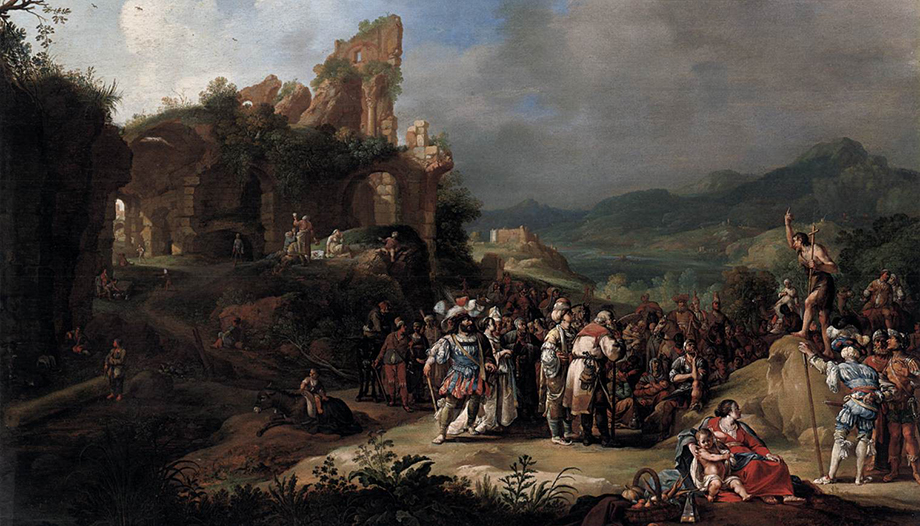Zephaniah reveals to us the deepest cause of joy: God's love for man. "Sing for joy, O daughter of Zion, rejoice, O Israel, rejoice and be glad with all your heart, O daughter of Jerusalem... The Lord, King of Israel, is in your midst." These are words that resonate in the angel's announcement to Mary and explain her confusion.
Gabriel's successive invitation to Mary to "fear not" because she has found favor with God, and her yes to the Incarnation of the Word, remind us of what Zephaniah adds: "Fear not, Zion... The Lord, your God, in the midst of you as a mighty savior. He will enjoy you with joy, he will renew you with his love, he will rejoice over you with shouts of gladness." God had spoken in the Bible in many ways, but here for the first time he shouts for joy.
Hitherto, the cries were of man addressing God: now they are of God rejoicing over his creature. "The Lord, your God, in your midst."These words of the prophet that resonate in Mary say to her: the Lord will dwell within you, in your womb, where your breath is born, where life is born. Source of perennial joy, to which we too are called. As in the words of Paul to the Philippians: "Rejoice in the Lord always.".
Luke speaks of John, who after prophesying goes on to catechesis. "The crowds" (3:10) indistinct and confused listen to him and question him. Their answers exhort to love by giving clothes and food to those who have none, and offer good advice for each category to do good in their work.
Thanks to the advice received, the multitude becomes "the people" (3:15) that awaits Christ. "What should we do?" is the same question that, according to Luke in Acts, is asked by those converted by the initial announcement of Jesus Christ on the day of Pentecost, and they receive Peter's answer: receive baptism. And the jailer of Paul and Silas, who is baptized with the whole family, asks the same question.
John also orients the people to Jesus' baptism, prophesies it and makes them desire it: "He will baptize you in the Holy Spirit and fire.". It does not name Jesus, but reveals his divine greatness: the adjective "strong" belongs to God, and he is not worthy to untie the laces of his sandals.
John does not know, however, that Jesus himself will wash the feet of his disciples, and that he will not begin by cleaning his courtyard and burning the straw, but that he will try to love and save each and every one. Therefore, in prison he does not understand the action of Jesus, and he will be asked: are you really the Christ? Jesus will answer him with the signs of the healings and the good he is doing: blessed are you, John, if you are not scandalized by me, if you live your imprisonment and your condemnation to death as a foretaste of my cross.
Homily on the readings of Sunday III of Advent
The priest Luis Herrera Campo offers its nanomiliaa small one-minute reflection for these readings.









